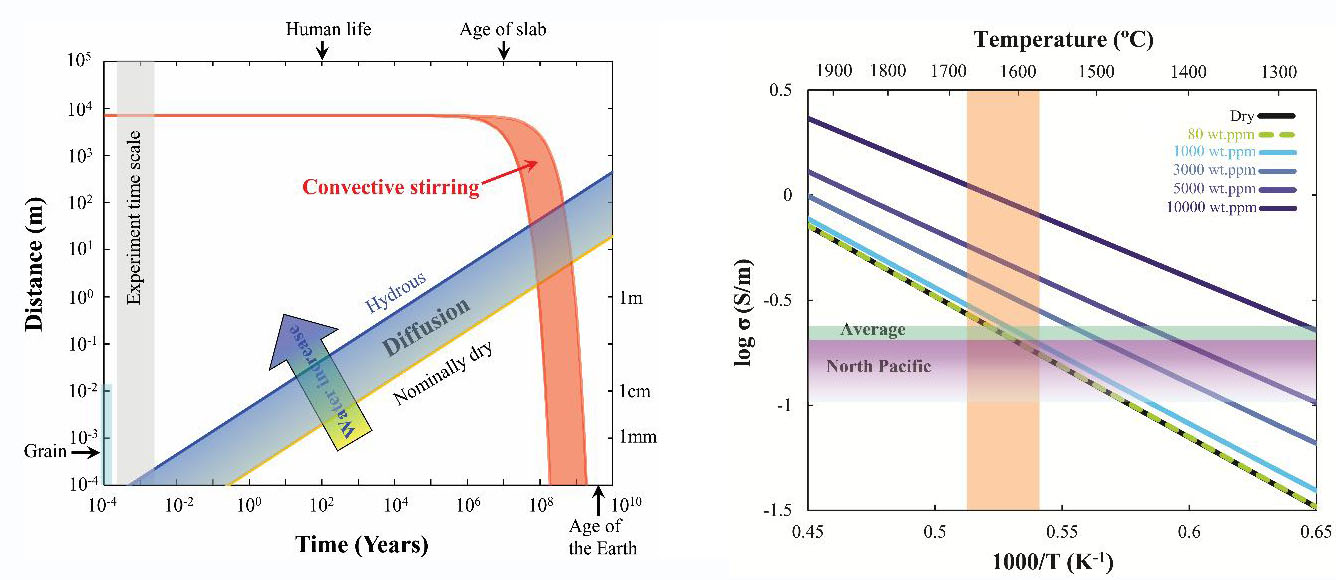Wadsleyite and ringwoodite are the major components of the lower mantle transition zone (MTZ) in the depth ranges of 410-520 and 520-660 km, respectively, and they can contain significant amount of water in their crystal structures. Therefore, the MTZ is considered to be a large water reservoir in deep Earth.
It has been demonstrated that the incorporation of even tens of wt. ppm water could significantly affect physical properties of nominally anhydrous minerals including seismic wave velocity, electrical conductivity and diffusion.
Prof. ZHANG Baohua from the Institute of Geochemistry, Chinese Academy of Sciences (IGCAS), in collaboration with Prof. Yoshino from the Institute of Planetary Materials, Okayama University, Japan, explored the effect of water on Fe-Mg interdiffusion in ringwoodite.
The scientists systematically measured the Fe-Mg interdiffusion rates in ringwoodite aggregates as a function of temperature, composition and water contents at 20 GPa and 1373-1673 K by the diffusion couple method.
The results indicated that at given pressure and temperature, the dependence of Fe-Mg interdiffusivity (DFe-Mg) in hydrous ringwoodite without dehydration was obviously faster than that measured in anhydrous one, with water content exponent r of 0.25 suggesting a non-negligible role of water in enhancing Fe-Mg interdiffusion in ringwoodite.
Despite water can greatly enhance cation diffusion rates in major mantle minerals in the MTZ, very limited length scales (<500 m) for the homogenization of chemical heterogeneities was calculated by DFe-Mg data, even when the timescale of Earth age was assumed. It supports the long-term preservation of chemical heterogeneity of subducted slabs in the MTZ.
In addition, comparison between the conductivities predicted from Fe-Mg interdiffusion and those obtained from magnetotelluric surveys suggests that around 0.1 wt.% water can account for the high conductivity anomalies (~10-0.6 - 10-1 S/m) observed in the lower part of the MTZ.
This study was supported by the Strategic Priority Research Program (B) of the Chinese Academy of Sciences, National Natural Science Foundation of China and Science Foundation of Guizhou Province.
The work titled “The effect of water on Fe–Mg interdiffusion rates in ringwoodite and implications for the electrical conductivity in the mantle transition zone” was published in Journal of Geophysical Research: Solid Earth.
 |
| Evolution of length scales relevant to the survival of heterogeneity in the mantle and ringwoodite electrical conductivity as a function of inverse temperature and H2O content (Image by IGCAS) |
Contact:ZHANG Baohua
Institute of Geochemistry, Chinese Academy of Science
E-mail: zhangbaohua@vip.gyig.ac.cn
(By Prof. ZHANG Baohua’s group)